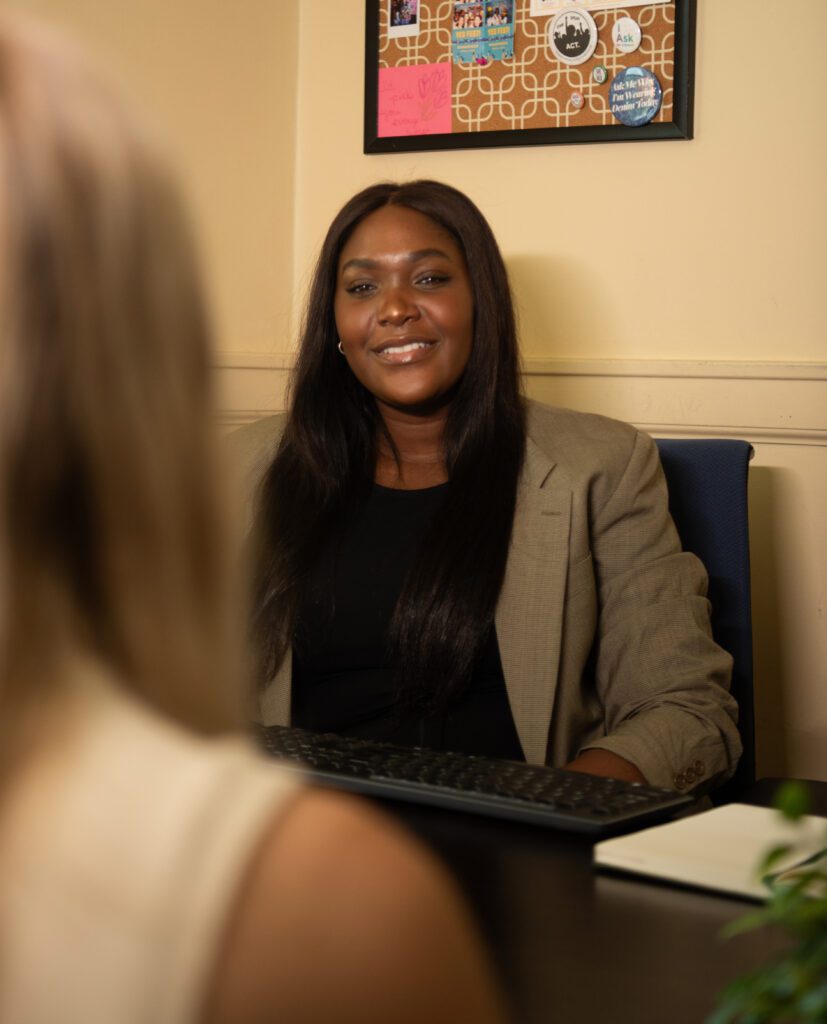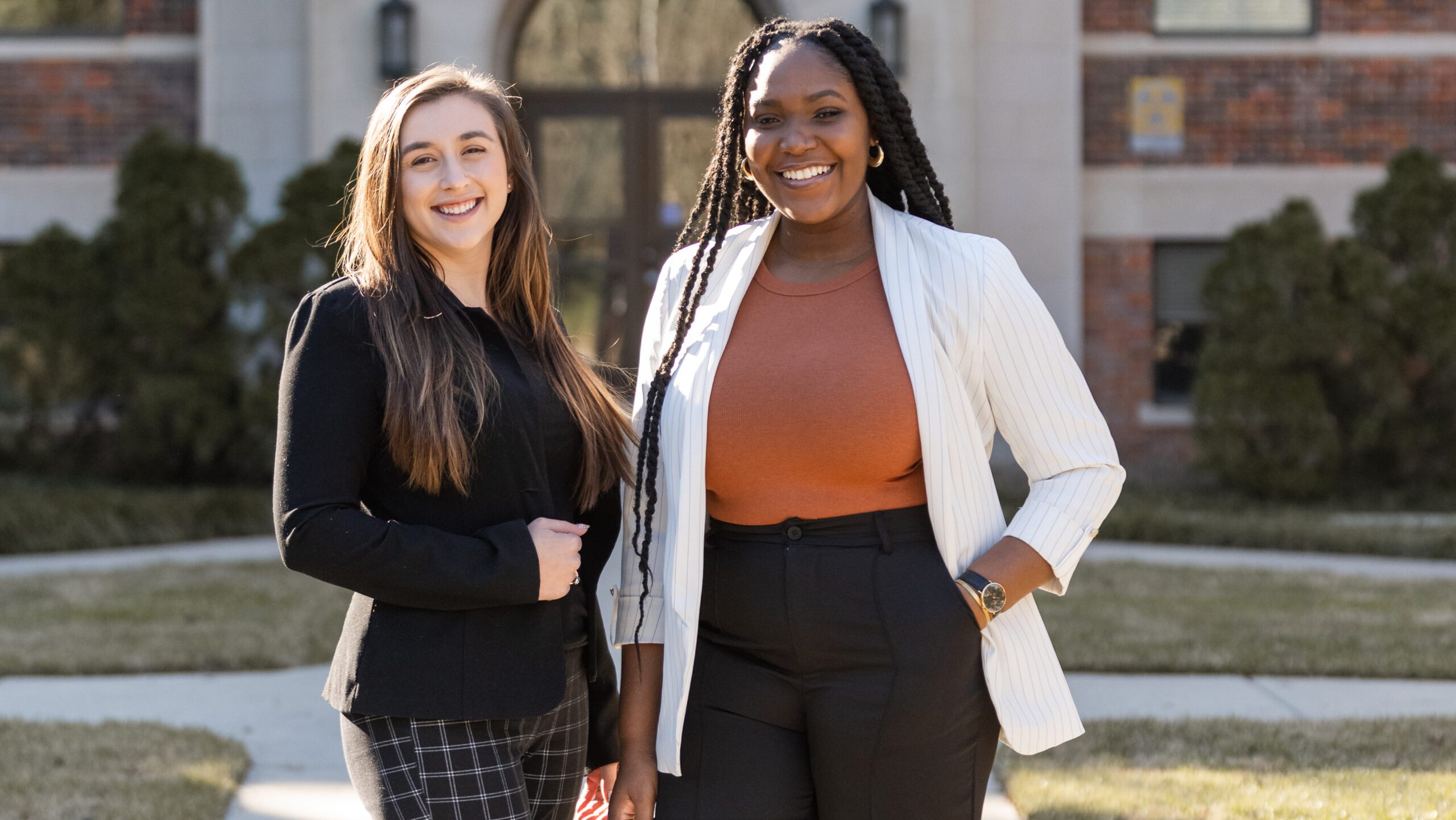Advocacy and support are their passions, and it’s evident in the impactful work they do for student survivors of interpersonal violence. While only in their roles as Clemson’s first Interpersonal Violence Response coordinators for a couple of years, Lauren Parker and Bat’sé Smart are no strangers when it comes to helping students feel safe and supported. They’ve dedicated their careers to helping survivors of violence heal and find success at Clemson and beyond.
We sat down with Lauren and Bat’sé to learn more about their role and how Interpersonal Violence Response can help students.
What is your role as Interpersonal Violence Response coordinators?
Working as a team, we help Clemson students impacted directly or indirectly by interpersonal violence by connecting them with resources to get the support they need to begin their healing journey. The trauma doesn’t have to be recent; it may have been before a student’s time at Clemson. We also serve as advocates for student survivors as they navigate processes.
Because survivors are the expert of their own story, we always strive to empower students by giving them the options and information they need to make informed decisions. Our goal is for students to know we are a safe space and that it’s ok to ask for help. Empowerment does not mean you have to do everything by yourself. It means you feel comfortable enough to communicate your needs and to ask for the support you need to be successful in all areas of your life.

What services are offered through Interpersonal Violence Response to Clemson students?
We primarily serve as a resource connector for students impacted by all forms of interpersonal violence. Taking a holistic approach, resources can be on or off campus and may include counseling, housing, academic, legal, etc. We can help facilitate meetings and accompany students to those meetings, as needed.
In addition to providing moral support, we try to create a community for students, which can also include helping students get connected to other organizations or departments on campus to find a community of their own.
Lastly, we offer an on-campus safe space – the Oak Room. It’s a private place student survivors can utilize when they need a safe space to study or feel supported.
How can students access your services?
To access our services, students can submit a CARE report. When completing the CARE report, make sure to select “Yes” to the question, “Are you submitting this report to connect to Interpersonal Violence Response services?”
Students can also reach us by email or phone, or they can walk into our offices on the third floor of Sirrine Hall during office hours.
How does Clemson’s Interpersonal Violence Response enhance the well-being of students?
The work we do directly impacts student survivors’ well-being and success. In our role, we’re able to advocate for students and support them as they navigate various processes and systems so they can begin healing from their trauma.
There’s evidence showing people who have a support system are more likely to bounce back from traumatic experiences than people who don’t, and we’re lucky to be part of that support system for our students. Our goal is to make the process of getting help a little less overwhelming and a little less stressful, and the healing process a little less daunting, so student survivors are more likely to be successful in their classes, personal life, careers and lives beyond Clemson.

There are a number of campus events throughout the months of October and April for Domestic Violence Awareness Month and Sexual Assault Awareness Month. Why is it important to raise awareness about interpersonal violence on a college campus, and how can students get involved and show their support?
The awareness months bring educational focus to interpersonal violence and show support to those impacted. They’re also a way for the community to come together and take a stand against violence. Students can show support by learning AND unlearning harmful stereotypes. Ask questions and understand how interpersonal violence impacts people on a college campus. Having these conversations can help lead to positive social change and stop the stigma.
October is Domestic Violence Awareness Month (DVAM). Domestic violence can happen to anyone regardless of defining characteristic or socioeconomic status and can affect friends, family, colleagues or even ourselves. This is a time when students can reflect on their current relationships and ask themselves if they feel safe physically, emotionally and mentally with their partner. DVAM on a college campus is also about giving students the building blocks for healthy relationships down the road – learning safe love and healthy relationships, red flags, toxic behaviors, and various forms of abuse.
Some of the simplest things students can do to show support for survivors and take a stand against interpersonal violence is attend awareness month events and be willing to be part of a conversation. There are a number of events occurring over the next few weeks as several departments and organizations come together for DVAM. Make plans to participate in these activities – show up, show out and share.
Learn more about Interpersonal Violence Response.







